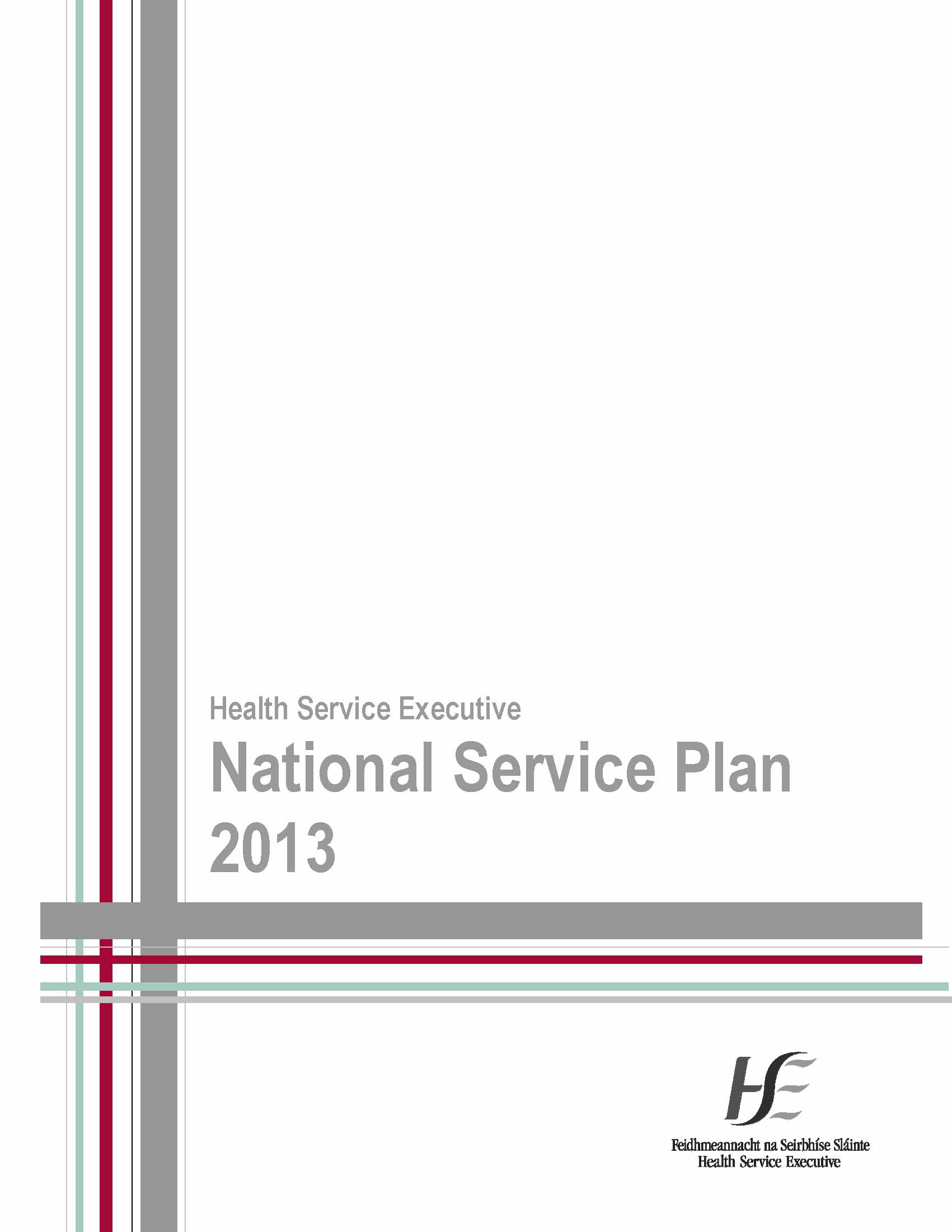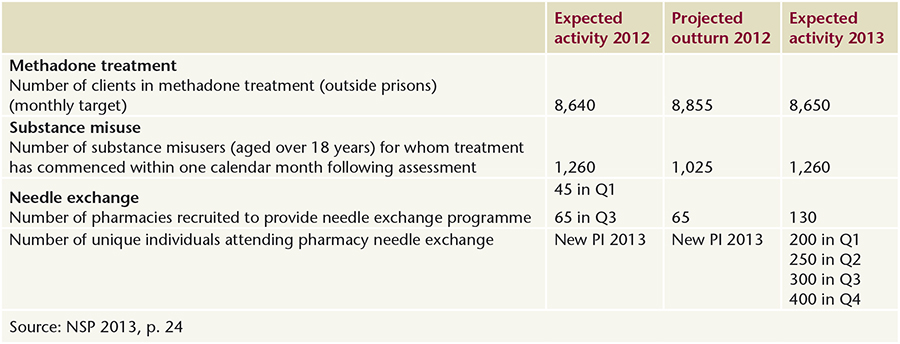Pike, Brigid
(2013)
HSE targets for drug-related services in 2013.
Drugnet Ireland,
Issue 45, Spring 2013,
pp. 4-5.
Each year the Health Service Executive (HSE) publishes a ‘national service plan’ (NSP). The plan sets out the type and volume of services to be delivered during the year. In 2013, according to the newly released NSP,1 service activity volumes in relation to drug-related treatment are expected to be similar to last year’s targets (see following table). A new performance indicator (PI), monitoring the number of unique individuals attending a pharmacy needle exchange, has been included.

NSP 2013 is a much shorter document than previous years’ plans.2 Deliverables, including priorities, key actions and measures, are not included.Moreover, there is no discussion of the past year’s performance vis-à-vis that expected in the coming year, for instance, how the reported 19% shortfall in the delivery of treatment to substance misusers over the age of 18 within one month of assessment in 2012 will be corrected in 2013, or how the roll-out of pharmacy-based needle exchanges will be speeded up in the current year.
Broader challenges
The HSE’s drug-related services may be expected to be influenced by the two broader challenges outlined in NSP 2013. First, in November 2012 the Minister for Health published Future health, the framework for ‘the most radical reform of our health services in the history of the state’.3 The core of this reform is a single-tier health service, supported by universal health insurance (UHI).The government is seeking innovative ways of care delivery and in particular integrated care pathways, to be achieved under the most stringent fiscal constraints experienced for decades.
Thus, the HSE will proceed with ‘business-as-usual’ in 2013, while also implementing structural reforms including changes to the way that hospital services are funded and managed, disaggregating childcare services from the HSE and establishing a child and family support agency, setting up a new directorate structure, establishing a patient safety agency, and ensuring that social care services including mental health, disability and primary care are fit for purpose.
A second key priority for drug-related treatment services will be to ensure that financial and service performance is reported on and managed in a timely and proactive manner. Building on the work of recent years, the 2013 accountability framework is intended to ensure that performance is measured against agreed plans that specify access targets, service quality and volumes. These plans will be monitored through a range of scorecard metrics. Service managers will be held to account and under-performance will be addressed.
The financial framework is intended to ensure that all areas of the health care system have budgets that are achievable, while also delivering the savings necessary. For the first time, the allocations outlined in the plan are based on the projected spend rather than on historic budgets, with a view to ensuring sustainable budgets.
1. Health Service Executive (2013)
Health Service Executive national service plan 2013. Dublin: Health Service Executive.
www.drugsandalcohol.ie/19102/3.Department of Health (2012)
Future health. A strategic framework for reform of the health service 2012–2015. Dublin: Department of Health.
www.drugsandalcohol.ie/18790/
